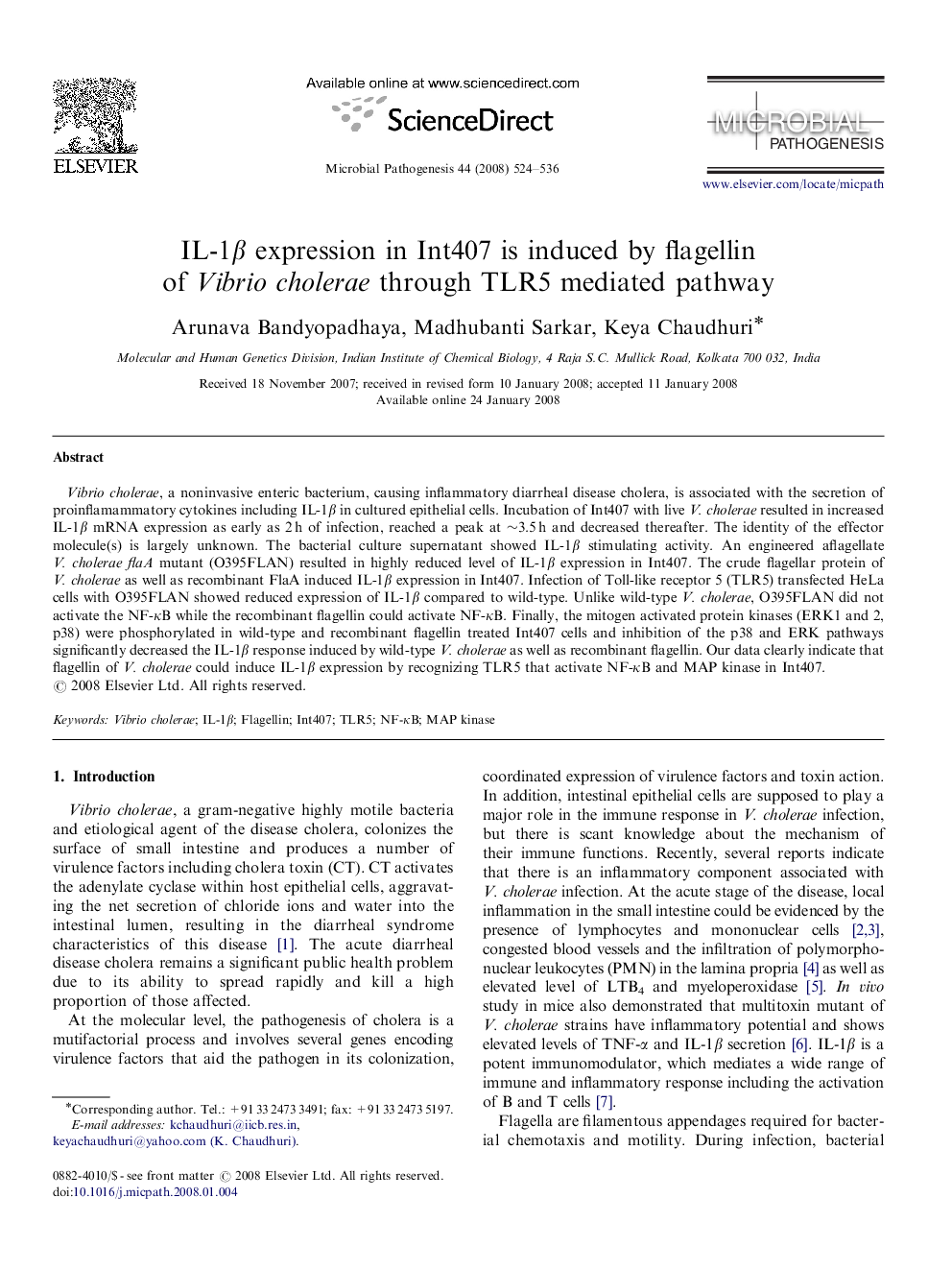| Article ID | Journal | Published Year | Pages | File Type |
|---|---|---|---|---|
| 3417079 | Microbial Pathogenesis | 2008 | 13 Pages |
Vibrio cholerae, a noninvasive enteric bacterium, causing inflammatory diarrheal disease cholera, is associated with the secretion of proinflamammatory cytokines including IL-1β in cultured epithelial cells. Incubation of Int407 with live V. cholerae resulted in increased IL-1β mRNA expression as early as 2 h of infection, reached a peak at ∼3.5 h and decreased thereafter. The identity of the effector molecule(s) is largely unknown. The bacterial culture supernatant showed IL-1β stimulating activity. An engineered aflagellate V. cholerae flaA mutant (O395FLAN) resulted in highly reduced level of IL-1β expression in Int407. The crude flagellar protein of V. cholerae as well as recombinant FlaA induced IL-1β expression in Int407. Infection of Toll-like receptor 5 (TLR5) transfected HeLa cells with O395FLAN showed reduced expression of IL-1β compared to wild-type. Unlike wild-type V. cholerae, O395FLAN did not activate the NF-κB while the recombinant flagellin could activate NF-κB. Finally, the mitogen activated protein kinases (ERK1 and 2, p38) were phosphorylated in wild-type and recombinant flagellin treated Int407 cells and inhibition of the p38 and ERK pathways significantly decreased the IL-1β response induced by wild-type V. cholerae as well as recombinant flagellin. Our data clearly indicate that flagellin of V. cholerae could induce IL-1β expression by recognizing TLR5 that activate NF-κB and MAP kinase in Int407.
